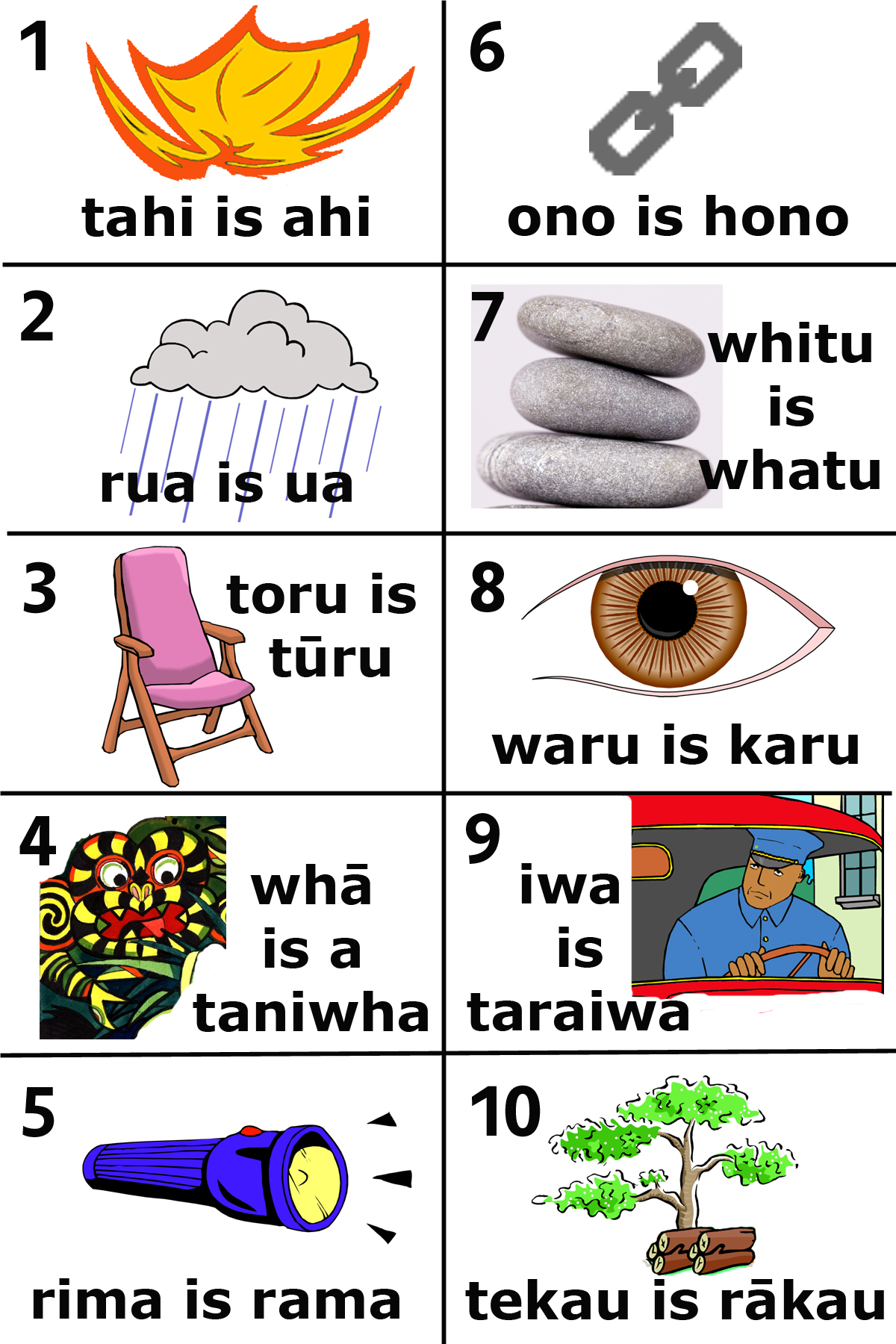Find out about the pegword mnemonic
To celebrate Māori Language Week here in Aotearoa (New Zealand), I've put together a pegword set in te reo:
- tahi — ahi
- rua — ua
- toru — tūru
- whā — taniwha
- rima — rama
- ono — hono
- whitu — whatu
- waru — karu
- iwa — taraiwa
- tekau — rākau
